Home>diy>Building & Construction>What Is Construction Management


Building & Construction
What Is Construction Management
Modified: January 6, 2024
Discover the key aspects of construction management and learn how it plays a vital role in the successful execution of building construction projects.
(Many of the links in this article redirect to a specific reviewed product. Your purchase of these products through affiliate links helps to generate commission for Storables.com, at no extra cost. Learn more)
Introduction
Welcome to the world of construction management! As the demand for construction projects continues to grow, the need for skilled professionals who can successfully plan, coordinate, and oversee these projects becomes increasingly crucial. Construction managers play a vital role in ensuring that construction projects are executed efficiently, on time, and within budget.
Construction management is the practice of organizing, coordinating, and controlling various aspects of a construction project, including planning, design, budgeting, scheduling, and execution. It involves collaborating with architects, engineers, contractors, and other stakeholders to meet the project’s objectives and deliver a high-quality final product.
Construction managers are responsible for overseeing the entire project lifecycle, from the initial conceptualization and planning phase to the final construction and handover. They must ensure that all activities are carried out according to safety regulations, building codes, and quality standards.
Construction management is a dynamic and challenging field that requires a unique set of skills and qualifications. In this article, we will explore the roles and responsibilities of construction managers, the importance of construction management in the industry, and the key skills required to excel in this profession.
Additionally, we will delve into the construction management process, including project planning and scheduling, cost estimation and budgeting, procurement and contract management, as well as construction safety and risk management. We will also discuss the importance of effective communication and collaboration in construction management, as well as the role of technology and emerging trends in shaping the future of the industry.
Whether you’re a construction professional aiming to advance in your career or a project owner looking to ensure the success of your construction project, understanding the fundamentals of construction management is essential. So, let’s dive in and explore the exciting world of construction management!
Key Takeaways:
- Construction management is a multifaceted field encompassing project planning, risk management, and collaboration. Embracing technology and emerging trends is crucial for successful project execution and industry advancement.
- Effective communication, sustainable practices, and proactive risk mitigation are essential for construction managers to navigate the complexities of the industry and deliver high-quality, efficient construction projects.
Read more: What Is Facility Management In Construction
Definition of Construction Management
Construction management is the practice of planning, coordinating, and overseeing the various activities involved in the construction of a project, from start to finish. It encompasses a wide range of functions, including strategic planning, resource allocation, budgeting, scheduling, and quality control.
Construction management involves working closely with architects, engineers, contractors, subcontractors, and other stakeholders to ensure that the project is completed on time, within budget, and to the required quality standards. It requires a deep understanding of construction processes, building codes, safety regulations, and industry best practices.
At its core, construction management is all about effective project management. It involves developing and implementing a comprehensive plan that outlines the project’s objectives, timeline, and resources required. This plan serves as a roadmap for the entire construction process, guiding the decision-making and ensuring that each task is executed efficiently and effectively.
In addition to managing the construction process, construction managers are also responsible for handling various administrative tasks. This may include managing contracts and procurement, overseeing financial transactions, coordinating with regulatory authorities, and addressing any issues or disputes that may arise during the construction phase.
Construction management is a multidimensional field that requires a diverse skill set. A successful construction manager must possess strong leadership skills, excellent communication and negotiation abilities, and a deep understanding of construction principles and practices.
Furthermore, construction management is not limited to just overseeing the construction of buildings. It also encompasses infrastructure projects such as roads, bridges, dams, and utilities, as well as specialty construction projects like renovations, remodeling, and restoration.
In summary, construction management is the art and science of effectively planning, coordinating, and overseeing construction projects. It involves managing resources, schedules, and budgets, while ensuring compliance with regulations and quality standards. Construction managers play a vital role in bringing projects to fruition and ensuring their success.
Roles and Responsibilities of Construction Managers
Construction managers play a crucial role in the successful execution of construction projects. They are responsible for overseeing and managing every aspect of the project, ensuring that it progresses smoothly and meets the client’s objectives. Here are some of the key roles and responsibilities of construction managers:
- Project Planning: Construction managers are involved in the initial planning phase of the project. They work closely with architects, engineers, and clients to define project goals, develop a project timeline, and create a comprehensive construction plan.
- Resource Management: Construction managers are responsible for allocating and managing resources efficiently. This includes procuring materials, equipment, and labor, as well as ensuring that they are utilized effectively throughout the project.
- Scheduling: Construction managers develop and maintain a detailed project schedule. They coordinate and sequence various construction activities to ensure smooth workflow and timely completion of the project.
- Budgeting and Cost Control: Construction managers prepare and manage the project budget, estimating costs, monitoring expenses, and implementing cost-saving measures. They work closely with clients to ensure that the project is completed within the allocated budget.
- Quality Control: Construction managers are responsible for ensuring that the project meets the required quality standards and specifications. They implement quality control measures, conduct inspections, and address issues to maintain the highest level of quality throughout the construction process.
- Contract Management: Construction managers handle contract negotiations, prepare contractual agreements, and manage relationships with subcontractors and vendors. They ensure that all parties involved in the project adhere to the terms and conditions outlined in the contracts.
- Risk Management: Construction managers identify potential risks and develop strategies to mitigate them. They implement safety protocols, ensure compliance with building codes and regulations, and maintain a safe working environment for all workers on the construction site.
- Communication and Collaboration: Construction managers act as the main point of contact between various stakeholders, including clients, architects, engineers, contractors, and subcontractors. They facilitate effective communication, resolve conflicts, and foster collaboration among the project team.
- Documentation and Reporting: Construction managers maintain project documentation, including progress reports, change orders, and financial records. They provide regular updates to clients and stakeholders, keeping them informed about the project’s status.
These are just a few of the many roles and responsibilities that construction managers undertake. Their ability to effectively manage resources, communicate with stakeholders, and navigate challenges is critical to the success of any construction project.
Importance of Construction Management in the Industry
Construction management plays a vital role in the success and efficiency of construction projects. It brings order, coordination, and expertise to the complex process of building and ensures that projects are completed on time, within budget, and to the required quality standards. Here are some key reasons why construction management is essential to the industry:
- Project Organization and Planning: Construction managers are responsible for developing a comprehensive plan for the project, outlining the scope, goals, and timeline. This helps in organizing the project and aligning the efforts of all stakeholders towards a common objective.
- Resource Optimization: Construction managers ensure efficient utilization of resources, including materials, equipment, and labor. They carefully plan and allocate resources to minimize waste, maximize productivity, and control costs.
- Risk Management and Safety: Construction sites can be hazardous environments. Construction managers prioritize safety and implement measures to mitigate risks and ensure a safe working environment for all workers. They enforce strict compliance with safety regulations and protocols.
- Budget Control: Construction managers are accountable for managing the project budget. They monitor expenses, track cost variations, and implement cost-saving strategies. This helps in preventing budget overruns and ensuring that the project remains financially feasible.
- Quality Assurance: Construction managers play a crucial role in maintaining and delivering the required quality standards. They implement quality control measures, conduct inspections, and review construction activities to ensure that the project meets or exceeds the client’s expectations.
- Timely Completion: Construction managers are responsible for planning and scheduling project activities. They coordinate the construction process, monitor progress, and ensure that milestones and deadlines are met. This helps in completing the project on time, avoiding delays and associated costs.
- Effective Communication: Construction managers act as a central point of communication between various stakeholders, including clients, architects, engineers, contractors, and subcontractors. They facilitate open and clear communication, ensuring that everyone is informed and aligned with project goals and requirements.
- Conflict Resolution: Construction projects often involve multiple parties with different perspectives and interests. Construction managers are skilled in managing conflicts and resolving disputes in a fair and efficient manner. This helps in maintaining positive relationships and promoting collaborative teamwork.
- Professional Expertise: Construction managers possess specialized knowledge and experience in construction practices, regulations, and industry trends. Their expertise enables them to make informed decisions, overcome challenges, and navigate complexities that arise during the construction process.
By effectively managing construction projects, construction managers contribute to the growth and success of the industry. They ensure that projects are delivered with the highest level of quality, efficiency, and client satisfaction. Without construction management, the construction industry would face significant challenges in delivering projects on time, within budget, and to the required specifications.
Key Skills and Qualifications for Construction Managers
Being a successful construction manager requires a unique combination of skills, qualifications, and personal attributes. Here are some of the key skills and qualifications that are essential for construction managers:
- Construction Knowledge: Construction managers must have a deep understanding of construction processes, methods, and materials. They should be familiar with building codes, regulations, and industry best practices. This knowledge allows them to make informed decisions, troubleshoot issues, and ensure quality in construction projects.
- Project Management: Construction managers need strong project management skills to effectively plan, execute, and control construction projects. They should be able to develop project timelines, manage resources, coordinate activities, and monitor progress. Additionally, they should possess skills in budgeting, scheduling, risk management, and quality control.
- Communication: Effective communication is critical for construction managers to collaborate with various stakeholders, including clients, architects, engineers, contractors, and subcontractors. They must be able to clearly convey information, actively listen, and facilitate productive discussions. Strong written and oral communication skills are essential for preparing reports, negotiating contracts, and resolving conflicts.
- Leadership: Construction managers should have strong leadership qualities to guide and motivate their teams. They need to inspire trust, delegate tasks, provide clear direction, and make timely decisions. They should also possess effective problem-solving and decision-making skills to address challenges that arise during the construction process.
- Financial Management: Construction managers should have a solid understanding of financial management principles. They need to be able to develop and manage project budgets, track expenses, and implement cost-control measures. They should also have knowledge of procurement processes and contract management in order to ensure optimal financial outcomes.
- Technical Proficiency: Construction managers should be well-versed in using technology and software relevant to the construction industry. This may include project management software, computer-aided design (CAD) software, quantity surveying tools, and building information modeling (BIM) systems. Being tech-savvy allows construction managers to streamline processes, enhance productivity, and stay up-to-date with industry advancements.
- Time Management: Construction managers must be skilled in managing their time and prioritizing tasks effectively. They need to juggle multiple responsibilities, meet deadlines, and adapt to changing circumstances. Strong time management skills help construction managers maintain project schedules and ensure timely completion.
- Attention to Detail: Construction managers should possess a keen eye for detail and be meticulous in their work. They need to review construction plans, specifications, and contracts to identify potential issues or discrepancies. Paying attention to detail helps ensure that construction projects are executed accurately and in compliance with relevant requirements.
- Interpersonal Skills: Construction managers must possess strong interpersonal skills to build and maintain positive relationships with diverse stakeholders. They should be approachable, diplomatic, and able to navigate conflicts and negotiations effectively. Building strong professional networks is crucial for successful construction management.
In addition to these skills, construction managers often pursue relevant educational qualifications such as a bachelor’s degree in construction management, engineering, or a related field. Professional certifications, such as the Certified Construction Manager (CCM) or Project Management Professional (PMP), can further enhance their credentials and demonstrate their expertise in construction management.
By combining these skills, qualifications, and personal attributes, construction managers are equipped to take on the challenges of managing construction projects and ensuring their successful completion.
Construction Management Process
The construction management process involves a series of interconnected activities and tasks that ensure the successful completion of a construction project. While the exact process may vary depending on the project’s scope and complexity, there are common steps that construction managers typically follow. Here is an overview of the construction management process:
- Project Initiation: The first step in the construction management process is project initiation. This involves identifying the project’s objectives, conducting feasibility studies, and determining resource requirements. Construction managers work closely with clients and stakeholders to define project goals, establish budgetary constraints, and assess the project’s viability.
- Project Planning: Once the project is approved, construction managers move into the planning phase. They develop a comprehensive project plan that outlines the project scope, timeline, budget, and resource allocation. They also work with architects and engineers to create detailed design drawings and specifications.
- Procurement and Contracting: Construction managers handle the procurement process, which includes the selection and negotiation of contracts with subcontractors, suppliers, and vendors. They ensure that contracts are clear, comprehensive, and in compliance with legal requirements. They also coordinate the procurement of materials, equipment, and services needed for the project.
- Construction Execution: This is the phase where the actual construction work takes place. Construction managers oversee the construction activities, ensuring that they are carried out according to the project plan, design specifications, and quality standards. They coordinate and manage subcontractors, monitor progress, and address any issues or delays that may arise.
- Cost Control and Financial Management: Throughout the construction process, construction managers monitor project costs and manage the project budget. They track expenses, review financial reports, and implement cost-saving measures when necessary. They also handle financial transactions, such as payments to contractors and suppliers.
- Quality Assurance and Control: Construction managers are responsible for ensuring that the construction work meets the required quality standards. They conduct regular inspections, perform quality control checks, and address any deficiencies or non-compliance with specifications. They also ensure that the project complies with safety regulations and building codes.
- Project Monitoring and Reporting: Construction managers continuously monitor project progress and performance. They track key metrics, compare them to the project plan, and identify any deviations or areas for improvement. They provide regular reports to clients and stakeholders, keeping them informed about the project’s status and addressing any concerns or changes.
- Project Closure and Handover: At the end of the construction process, construction managers oversee the project’s closure and handover. This includes conducting final inspections, ensuring completion of all documentation, obtaining necessary approvals and certifications, and facilitating a smooth transition to the client. They also manage any warranty or maintenance-related activities post-construction.
The construction management process requires strong project management skills, effective communication, and the ability to manage resources and stakeholders. It is a dynamic and iterative process that involves continuous monitoring, adaptation, and collaboration to ensure successful project delivery.
By following this structured construction management process, construction managers are able to navigate the complexities of construction projects, manage risks, and deliver high-quality construction projects that meet the client’s expectations.
Project Planning and Scheduling in Construction Management
Project planning and scheduling are critical components of effective construction management. They involve the development of a comprehensive plan and timeline that outlines the tasks, activities, and resources required to successfully complete a construction project. Here is an overview of project planning and scheduling in construction management:
Project Planning:
The project planning phase is where construction managers work closely with clients, architects, and engineers to define project goals, establish the scope of work, and develop a detailed project plan. Key steps in project planning include:
- Defining Project Objectives: Construction managers work with clients to clearly define the project objectives, including the desired outcome, timeline, budget, and quality standards.
- Identifying Project Scope: Construction managers determine the specific tasks, activities, and deliverables required to achieve the project objectives. They consider factors such as design requirements, permits and approvals, and site conditions.
- Creating a Work Breakdown Structure (WBS): Construction managers develop a WBS, which is a hierarchical representation of all the project’s tasks and activities. This helps in breaking down the project into manageable components.
- Sequencing Activities: Construction managers determine the logical sequence in which tasks and activities should be performed. They consider dependencies, constraints, and the availability of resources during this process.
- Estimating Resources: Construction managers identify and estimate the resources required for each task and activity, including labor, materials, equipment, and subcontractors. They also consider any potential risks or uncertainties that may impact resource allocation.
- Developing a Timeline: Construction managers create a project timeline that outlines the start and end dates for each task and activity. They consider critical path analysis and account for dependencies and potential delays.
- Identifying Milestones: Construction managers establish milestones, which are significant points in the project that mark the completion of a major deliverable or the achievement of a key objective. Milestones help in tracking progress and evaluating project performance.
- Creating a Communication Plan: Construction managers develop a communication plan that outlines how information will be shared among project team members, stakeholders, and clients. This ensures effective communication throughout the project.
Project Scheduling:
Once the project plan is developed, construction managers move into the project scheduling phase. This involves assigning resources, finalizing task durations, and creating a detailed schedule. Key steps in project scheduling include:
- Assigning Resources: Construction managers allocate resources to each task and activity based on the availability, skills, and expertise of personnel and the availability of materials and equipment.
- Estimating Task Durations: Construction managers determine the time required to complete each task and activity. This is based on historical data, industry benchmarks, and input from subject matter experts.
- Creating a Gantt Chart: Construction managers use a Gantt chart to visually represent the project schedule. The Gantt chart displays the timeline, tasks, milestones, and dependencies, allowing for easy tracking and visualization of the project’s progress.
- Monitoring and Controlling the Schedule: Throughout the construction process, construction managers continuously monitor and control the project schedule. They track actual progress, compare it to the planned schedule, and make adjustments as needed to stay on track.
- Managing Changes: Construction managers handle change requests and variations that may impact the project schedule. They evaluate the impact of changes, revise the schedule if necessary, and communicate any schedule adjustments to the project team and stakeholders.
- Critical Path Analysis: Construction managers perform critical path analysis to identify the tasks and activities that are crucial to the project’s timeline. This helps in prioritizing activities and managing potential bottlenecks or delays.
Effective project planning and scheduling are crucial for construction managers to ensure the timely completion of projects, optimal resource utilization, and adherence to project objectives. By carefully developing a project plan and schedule, construction managers can effectively manage tasks, allocate resources, track project progress, and make informed decisions to deliver successful construction projects.
Tip: Construction management involves planning, coordinating, and overseeing a construction project from start to finish. Effective communication and organization are key to success in this field.
Cost Estimation and Budgeting in Construction Management
Cost estimation and budgeting are fundamental aspects of construction management. They involve accurately forecasting and managing the financial resources required for a construction project. Effective cost estimation and budgeting help ensure that projects are financially viable, costs are controlled, and resources are allocated efficiently. Here is an overview of cost estimation and budgeting in construction management:
Cost Estimation:
The cost estimation process involves identifying and evaluating all the costs associated with a construction project. This includes direct costs, such as materials, labor, equipment, and subcontractors, as well as indirect costs, such as permits, insurance, finance charges, and overhead expenses. Key steps in cost estimation include:
- Quantifying the Work: Construction managers break down the project into measurable units, such as square footage or linear feet, to estimate the quantities of materials, labor, and equipment required for each task or activity.
- Obtaining Price Quotes: Construction managers collect price quotes from suppliers and subcontractors to determine the costs of materials, equipment rentals, and subcontracted services.
- Considering Labor Costs: Construction managers estimate labor costs based on labor rates, productivity rates, and the number of hours required to complete each task or activity.
- Accounting for Equipment Costs: Construction managers consider equipment costs, including rentals, maintenance, fuel, and operator fees, based on the equipment types and durations required for the project.
- Factoring in Indirect Costs: Construction managers incorporate indirect costs, such as permits, insurance, utilities, overhead expenses, and contingency funds, to account for all the expenses of the project.
- Using Historical Data: Construction managers refer to historical project data and cost databases to estimate costs accurately based on similar projects or industry benchmarks.
- Considering Market Conditions: Construction managers assess market conditions and industry trends to anticipate any fluctuations in material prices, labor rates, or equipment costs that may impact the project’s budget.
- Accounting for Risks: Construction managers identify and assess potential risks that may impact the project’s costs, such as unforeseen site conditions, design changes, or regulatory requirements, and allocate contingency funds accordingly.
Budgeting:
Once the cost estimation is complete, construction managers move into the budgeting phase. Budgeting involves allocating the estimated costs to the various tasks and activities of the project. Key steps in budgeting include:
- Creating a Project Budget: Construction managers consolidate the estimated costs into a comprehensive project budget. The budget outlines the total anticipated costs for each task or activity, as well as the overall project.
- Identifying Funding Sources: Construction managers identify and secure funding sources for the project, whether through client financing, loans, grants, or other means.
- Monitoring and Controlling Costs: Throughout the project, construction managers closely monitor costs, track actual expenditures, and compare them to the budgeted amounts. They make adjustments as needed to ensure that the project remains within the allocated budget.
- Implementing Cost-Saving Measures: Construction managers actively seek cost-saving opportunities by optimizing resource utilization, exploring alternative materials or methods, negotiating contracts, and minimizing waste or rework.
- Managing Change Orders: Construction managers handle change orders and variations that may impact the project’s costs. They analyze the cost implications, revise the budget if necessary, and communicate any budget adjustments to the project team and stakeholders.
- Communicating Budget Performance: Construction managers provide regular budget reports to clients and stakeholders, keeping them informed about the project’s financial status, any deviations from the budget, and the reasons behind the changes.
By effectively estimating costs and creating a realistic project budget, construction managers ensure that the project remains financially viable, resources are allocated efficiently, and costs are controlled throughout the construction process. This helps in delivering successful construction projects within the allocated budget and achieving client satisfaction.
Procurement and Contract Management in Construction
Procurement and contract management are integral parts of construction management. They involve the acquisition of goods, services, and works required for a construction project, as well as the management of contractual agreements with suppliers, subcontractors, and clients. Effective procurement and contract management help ensure that the project’s needs are met, resources are obtained efficiently, and legal and financial risks are mitigated. Here is an overview of procurement and contract management in construction:
Procurement Process:
The procurement process in construction involves identifying, selecting, and acquiring the necessary resources, materials, equipment, and services for the project. Key steps in the procurement process include:
- Identifying Procurement Needs: Construction managers assess the project’s requirements and determine the procurement needs, including the types of materials, equipment, and services that are essential for the project.
- Supplier Selection: Construction managers identify potential suppliers and evaluate them based on criteria such as experience, reputation, quality of products or services, price, and delivery capabilities.
- Request for Proposal (RFP) or Request for Quotation (RFQ): Construction managers prepare RFPs or RFQs, which detail the project requirements and invite suppliers to submit their proposals or quotations.
- Evaluation and Negotiation: Construction managers evaluate the received proposals or quotations, comparing them based on factors such as price, quality, delivery time, and contractual terms. They may negotiate the terms and conditions with selected suppliers to ensure a mutually beneficial agreement.
- Contract Award: Construction managers award contracts to chosen suppliers, issuing purchase orders or formal contracts that outline the agreed-upon terms, specifications, delivery schedules, and pricing.
- Procurement of Materials and Services: Construction managers facilitate the procurement process, ensuring that materials, equipment rentals, and subcontracted services are obtained as per the agreed-upon terms. They coordinate with suppliers, monitor deliveries, and ensure compliance with quality standards.
- Supplier Relationship Management: Construction managers maintain positive relationships with suppliers throughout the project. They communicate effectively, address any issues or disputes, and foster collaboration to ensure that the project’s procurement needs are consistently met.
Contract Management:
Contract management involves the oversight and administration of contractual agreements related to a construction project. It ensures that all parties involved comply with the terms and conditions of the contracts and that potential risks are managed effectively. Key steps in contract management include:
- Contract Development and Review: Construction managers work with legal professionals to develop contracts that clearly define the parties’ obligations, project scope, timelines, deliverables, payment terms, warranties, and dispute resolution processes. They review and negotiate contracts to protect the project’s interests.
- Contract Implementation: Construction managers ensure that contracts are executed properly, with all parties understanding their roles and responsibilities. They communicate the contract terms to the project team and stakeholders, ensuring clarity and alignment.
- Contract Compliance: Construction managers monitor contract compliance, ensuring that all parties fulfill their obligations within the specified contractual terms. They track deliverables, milestones, payments, and any required documentation, and address any issues or disputes that arise.
- Change Orders and Variations: Construction managers handle change orders and variations that may impact the project’s scope, schedule, or costs. They assess the impacts, negotiate changes to the contract, and ensure that the necessary documentation and approvals are in place.
- Contractual Risk Management: Construction managers identify potential risks associated with the contracts and work towards mitigating them. They manage performance and warranty obligations, adhere to relevant laws, regulations, and industry standards, and maintain insurance coverage as required.
- Contract Closeout: Construction managers oversee the closure of contracts at the end of the project. This includes ensuring that all deliverables are completed, final payments are made, any necessary documentation is obtained, and warranties or guarantees are provided to the client.
By effectively managing procurement and contract activities, construction managers ensure that the project obtains the necessary resources, materials, and services efficiently, while minimizing risks associated with the contractual agreements. This helps in achieving project objectives, maintaining positive relationships with suppliers and clients, and delivering successful construction projects.
Read more: What Is Construction Safety Management
Construction Safety and Risk Management
Construction safety and risk management form the foundation for maintaining a safe working environment and minimizing potential hazards and incidents in construction projects. Safety measures and risk management strategies are implemented to protect workers, reduce accidents, and ensure compliance with regulatory requirements. Let’s explore the importance and key aspects of construction safety and risk management:
Importance of Construction Safety:
Construction sites are inherently hazardous environments, with numerous potential risks and dangers. Prioritizing construction safety is critical for several reasons:
- Worker Protection: Ensuring the safety of construction workers is paramount. By implementing safety protocols and providing proper training, construction managers can reduce the likelihood of accidents, injuries, and ill health among workers.
- Legal Compliance: Construction projects are subject to various laws, regulations, and standards related to occupational health and safety. Adhering to these requirements is essential to avoid legal penalties and liability.
- Cost Savings: Effective construction safety measures can contribute to cost savings by reducing accident-related expenses, such as medical costs, workers’ compensation claims, and equipment repair or replacement.
- Productivity and Efficiency: By maintaining a safe working environment, construction managers can improve worker morale and productivity. When workers feel safe and secure, they can focus more on their tasks, resulting in increased efficiency and quality.
- Reputation and Client Satisfaction: Construction companies that prioritize safety build a strong reputation for their commitment to a safe work environment. Clients and stakeholders often prefer to work with firms that prioritize safety, leading to increased client satisfaction and building positive relationships.
Key Aspects of Construction Safety and Risk Management:
Construction safety and risk management involve several key aspects that construction managers should address throughout the project lifecycle:
- Risk Assessment: Construction managers identify and assess potential risks and hazards associated with the project. This includes evaluating the site conditions, equipment usage, materials handling, and the tasks to be performed.
- Implementing Safety Programs: Construction managers develop and implement comprehensive safety programs that include safety policies, procedures, and guidelines. These programs outline roles, responsibilities, and best practices to ensure a safe work environment.
- Training and Education: Construction managers provide thorough safety training and education to all workers, ensuring they are equipped with the knowledge and skills to identify and mitigate hazards. This includes training on the safe use of equipment, handling hazardous substances, and emergency response procedures.
- Site Inspections and Audits: Regular site inspections and audits are conducted to identify potential safety issues, assess compliance with safety protocols, and implement corrective actions as necessary. This helps in proactively identifying and mitigating risks before accidents occur.
- Personal Protective Equipment (PPE): Construction managers ensure that appropriate PPE is provided and utilized by workers. This includes safety helmets, gloves, safety glasses, high-visibility vests, and other protective gear specific to the tasks being performed.
- Safety Communication: Effective communication about safety procedures, potential hazards, and emergency protocols is critical. Construction managers facilitate clear and consistent communication among all workers, subcontractors, and stakeholders to ensure everyone is informed and aware of safety requirements.
- Accident Reporting and Investigation: Construction managers establish processes for reporting accidents, incidents, near misses, and unsafe conditions. Thorough investigations are conducted to determine the root causes and implement preventive measures to avoid future occurrences.
- Safety Culture: Construction managers foster a positive safety culture by promoting a collective responsibility for safety among all workers. They encourage open communication, collaboration, and active participation in safety initiatives.
By implementing robust construction safety and risk management practices, construction managers can protect the well-being and lives of workers, reduce accidents, and create a culture of safety throughout the project. Ultimately, construction safety not only ensures legal compliance but also contributes to the overall success of construction projects.
Communication and Collaboration in Construction Management
Effective communication and collaboration are vital in construction management, as they facilitate efficient project execution, enhance productivity, and foster positive working relationships among project stakeholders. Seamless communication and collaboration help to ensure that all parties involved are on the same page, leading to successful project outcomes. Here is an overview of the importance and key aspects of communication and collaboration in construction management:
The Importance of Communication and Collaboration:
Construction projects are complex endeavors with multiple teams, including architects, engineers, contractors, subcontractors, suppliers, and clients. Clear and effective communication, as well as collaborative efforts, are crucial for the following reasons:
- Shared Understanding: Effective communication ensures that all stakeholders have a shared understanding of the project objectives, scope, and requirements. It helps to prevent misunderstandings, ambiguity, and misaligned expectations.
- Coordination and Alignment: Communication and collaboration enable teams to coordinate their efforts and align their activities to achieve project milestones and deadlines. When all members of the project team are in sync, tasks can be completed more efficiently and effectively.
- Issue Resolution: Open and transparent communication promotes the early identification and resolution of issues and conflicts. It allows teams to address challenges promptly, preventing them from escalating and impacting the progress of the project.
- Risk Mitigation: Effective communication ensures that all parties are aware of potential project risks and can collaborate on identifying and implementing mitigation strategies. It enables the sharing of valuable insights and lessons learned to prevent or minimize risks.
- Improved Quality: Collaboration facilitates the exchange of ideas, expertise, and innovations among team members. It leads to enhanced problem-solving, creative solutions, and continuous improvement in project quality.
- Enhanced Client Satisfaction: Clear and regular communication with clients builds trust, allows for timely updates, and enables clients to provide feedback. It ensures that projects meet or exceed client expectations, leading to higher satisfaction and potential future collaborations.
Key Aspects of Communication and Collaboration:
In order to foster effective communication and collaboration in construction management, consider the following key aspects:
- Open and Transparent Communication: Encourage open lines of communication throughout the project team, ensuring that information is shared freely, promptly, and accurately. Foster an environment where team members feel comfortable expressing concerns, asking questions, and providing constructive feedback.
- Regular Project Meetings: Schedule regular project meetings to discuss progress, challenges, and upcoming tasks. These meetings provide opportunities for team members to exchange information, align their efforts, and make informed decisions.
- Utilize Communication Technology: Leverage communication tools and technology, such as project management software, collaboration platforms, and instant messaging apps, to facilitate real-time communication and efficient sharing of project updates, documents, and deliverables.
- Establish Clear Roles and Responsibilities: Clearly define the roles and responsibilities of each team member to avoid confusion and duplication of efforts. Ensure that everyone understands their tasks and deliverables, as well as their dependencies and interactions with other team members.
- Facilitate Collaborative Problem-Solving: Encourage teams to collaborate in problem-solving and decision-making. Foster a culture that values different perspectives, encourages brainstorming, and involves stakeholders in finding effective solutions to challenges.
- Effective Stakeholder Management: Maintain open lines of communication with all project stakeholders, including clients, architects, engineers, and subcontractors. Regularly update them on project progress, milestones achieved, and any changes impacting the project scope or schedule.
- Document and Share Project Information: Document all project-related information, such as meeting minutes, project plans, and progress reports. Share this information with relevant stakeholders to ensure that all team members have access to the latest project updates.
- Resolve Conflicts: Address conflicts or disagreements promptly and professionally. Encourage constructive dialogue, active listening, and a collaborative mindset to find mutually beneficial resolutions.
By prioritizing effective communication and fostering a collaborative culture, construction managers can enhance project outcomes, build strong relationships, and ensure the successful delivery of construction projects.
Technology and Tools in Construction Management
Technology has revolutionized the construction industry, offering innovative solutions that streamline processes, improve productivity, and enhance project outcomes. Embracing technology and utilizing the right tools can significantly benefit construction management, leading to increased efficiency, reduced costs, and improved collaboration among project stakeholders. Here is an overview of the importance and key areas where technology and tools are utilized in construction management:
Importance of Technology and Tools:
Technology and tools play a pivotal role in advancing construction management practices. Here are some reasons why they are important in the industry:
- Efficiency and Productivity: Technology automates repetitive tasks and streamlines processes, resulting in increased productivity and efficiency. Construction management tools help optimize scheduling, resource allocation, and task assignment, allowing for smoother project execution.
- Accuracy and Precision: Technology reduces errors and improves accuracy in tasks such as cost estimation, scheduling, and material quantification. By leveraging tools like building information modeling (BIM) and computer-aided design (CAD), construction managers can assess project feasibility and visualize the construction process more effectively.
- Collaboration and Communication: Digital collaboration tools enable real-time communication and information sharing among project stakeholders. Working on a shared platform or using cloud-based collaboration software allows for seamless interaction and data exchange, leading to enhanced collaboration and coordination.
- Risk Management and Safety: Technology plays a vital role in enhancing construction site safety. Tools such as drones, wearable devices, and Internet of Things (IoT) sensors enable real-time monitoring of site conditions, identifying potential hazards, and ensuring compliance with safety protocols.
- Data Analysis and Decision-Making: Technology provides access to vast amounts of data that can be analyzed to derive insights and make informed decisions. Advanced analytics tools enable construction managers to assess project performance, identify trends, and optimize processes based on data-driven insights.
- Quality Control and Documentation: Technology facilitates quality control by enabling real-time monitoring and documentation of construction activities. Tools such as mobile applications and digital checklists streamline quality assurance processes and maintain comprehensive records for future reference.
- Cost Control and Project Accounting: Technology aids in cost estimation, budgeting, and financial management. Construction management software allows for accurate cost tracking, invoice management, and real-time financial reporting, enabling effective cost control and project accounting.
Key Areas of Technology and Tools in Construction Management:
Construction management leverages technology and tools in several key areas, including:
- Building Information Modeling (BIM): BIM software enables the creation of digital representations of the project, facilitating collaboration, virtual walkthroughs, clash detection, and accurate quantity takeoffs.
- Project Management Software: Project management tools centralize project data, allowing for efficient scheduling, task management, resource allocation, document control, and communication among team members.
- Drones and Aerial Imaging: Drones are used for aerial inspections, site surveys, and progress monitoring. They provide real-time visual data, enabling project managers to assess site conditions accurately and make informed decisions.
- Mobile Applications: Mobile apps streamline field activities, allowing for real-time reporting, issue tracking, and collaboration. They enable on-site data collection, instant communication, and remote access to project information.
- Virtual and Augmented Reality: Virtual and augmented reality technologies provide immersive experiences that aid in project visualization, design review, stakeholder engagement, and training.
- Sensors and IoT: Internet of Things (IoT) sensors monitor site conditions, equipment performance, and worker safety in real-time. They provide data for analytics, predictive maintenance, and proactive risk management.
- Data Analytics and Artificial Intelligence: Advanced analytics and AI algorithms analyze large volumes of data to derive insights and make data-driven decisions. These technologies help in optimizing schedules, identifying potential risks, and improving project performance.
- Collaboration and Communication Tools: Cloud-based collaboration platforms, video conferencing, instant messaging apps, and document sharing software facilitate seamless communication, information exchange, and collaboration among project stakeholders.
By embracing technology and utilizing the right tools, construction managers can optimize processes, enhance collaboration, improve project outcomes, and stay ahead in an increasingly digitalized construction industry.
Emerging Trends in Construction Management
The field of construction management is constantly evolving, driven by advancements in technology, changing industry demands, and the need for more sustainable and efficient construction practices. Staying updated with emerging trends is crucial for construction managers to adapt and thrive in the industry. Here are some of the key emerging trends in construction management:
- Building Information Modeling (BIM): BIM continues to revolutionize construction management by offering a collaborative platform for designing, planning, and managing construction projects. BIM allows for improved visualization, clash detection, and efficient coordination among project stakeholders.
- Modular and Prefabricated Construction: The use of modular and prefabricated construction methods is gaining popularity due to their potential for faster construction times, reduced waste, and improved quality control. Modular construction involves assembling components off-site and then transporting them to the construction site for installation.
- Sustainable Construction: With a growing focus on sustainability, construction managers are incorporating eco-friendly practices into their projects. This includes using renewable energy sources, implementing green building materials, optimizing energy efficiency, and adopting waste reduction strategies.
- Digitalization and Automation: The construction industry is embracing digital technologies and automation to improve efficiency and productivity. Technologies such as robotics, artificial intelligence, cloud computing, and the Internet of Things (IoT) are being utilized to automate routine tasks, enhance project collaboration, and optimize construction processes.
- Augmented Reality (AR) and Virtual Reality (VR): AR and VR technologies are increasingly being utilized in construction management for design visualization, virtual walkthroughs, and training purposes. These technologies enable stakeholders to experience a project before it is built, aiding in decision-making and reducing rework.
- Big Data and Predictive Analytics: The collection and analysis of big data are transforming construction management. By leveraging data from various sources, construction managers can gain insights into project performance, predict risks, optimize schedules, and make informed decisions to improve project outcomes.
- Lean Construction: Lean construction principles are gaining traction, focusing on reducing waste, improving workflows, and increasing value for clients. Lean methodologies seek to eliminate inefficiencies and foster continuous improvement throughout the construction process.
- Construction Safety Technologies: Safety remains a priority in the construction industry, and emerging technologies are being deployed to enhance site safety. This includes the use of wearable devices, IoT sensors, and real-time monitoring systems to identify potential hazards and ensure compliance with safety protocols.
- Green Building Certifications: Green building certifications, such as LEED (Leadership in Energy and Environmental Design), are becoming increasingly important in construction projects. Construction managers are adopting sustainable practices to meet certification requirements and address growing demand for environmentally friendly buildings.
- Collaborative Project Delivery Methods: Integrated project delivery methods, such as design-build and public-private partnerships, are gaining popularity. These collaborative approaches involve early involvement of key stakeholders, fostering better communication, and maximizing the benefits of shared knowledge and expertise.
By staying informed and embracing these emerging trends, construction managers can ensure they are well-equipped to navigate the evolving landscape of construction management. Embracing technology, sustainability, collaboration, and efficiency will contribute to more successful and resilient construction projects in the future.
Read more: What Is Risk Management In Construction
Conclusion
In conclusion, construction management is a dynamic and multifaceted field that plays a crucial role in the successful execution of construction projects. From project initiation to planning, scheduling, procurement, and risk management, construction managers are responsible for coordinating and overseeing every aspect of a construction project.
Throughout this article, we have explored the key components of construction management, including project planning and scheduling, cost estimation and budgeting, procurement and contract management, construction safety, communication, collaboration, and the integration of technology. These elements are essential for ensuring project success, meeting client expectations, and delivering high-quality construction projects.
By embracing emerging trends such as BIM, modular construction, sustainable practices, and digitalization, construction managers can stay ahead of the curve and drive innovation in the industry. The integration of technology and tools enables improved efficiency, better communication, enhanced collaboration, and data-driven decision-making.
It is important for construction managers to possess a diverse skill set that encompasses construction knowledge, project management expertise, strong communication and leadership skills, and the ability to adapt to changing circumstances. Continuous learning, staying updated with industry best practices, and seeking professional certifications can further enhance the capabilities of construction managers.
Construction projects are facing increasing complexity, safety requirements, sustainability standards, and time constraints. Effective construction management is imperative to ensure the successful completion of projects while adhering to cost constraints and quality expectations. By implementing best practices, fostering collaboration, embracing technology, and embracing emerging trends, construction managers can navigate these challenges and drive the industry forward.
In essence, construction management is not just about managing the construction process, but about effectively coordinating resources, fostering collaboration, mitigating risks, and delivering successful construction projects. With a strong foundation in these principles and a commitment to continuous improvement, construction managers play a pivotal role in shaping the future of the construction industry.
Frequently Asked Questions about What Is Construction Management
Was this page helpful?
At Storables.com, we guarantee accurate and reliable information. Our content, validated by Expert Board Contributors, is crafted following stringent Editorial Policies. We're committed to providing you with well-researched, expert-backed insights for all your informational needs.
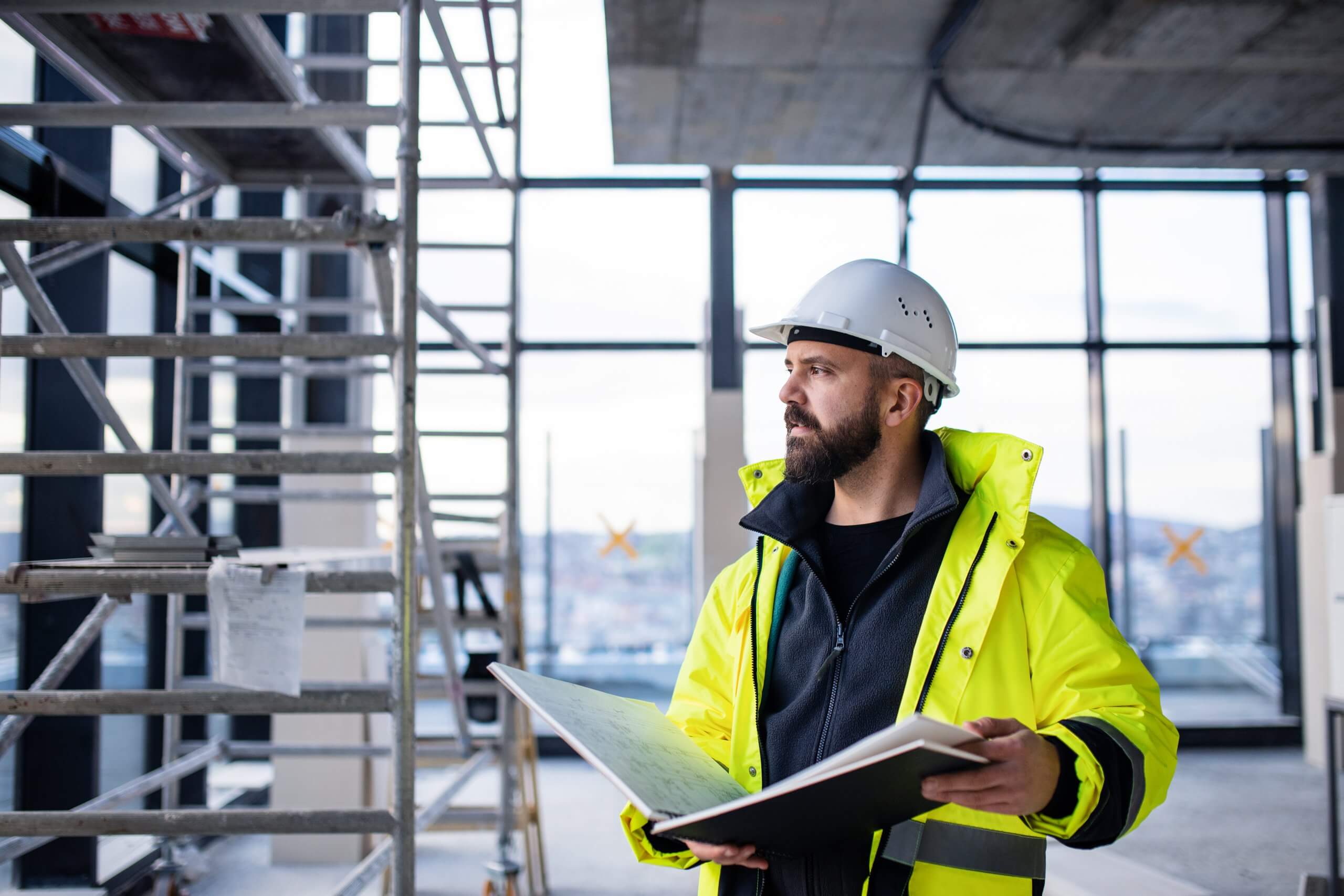
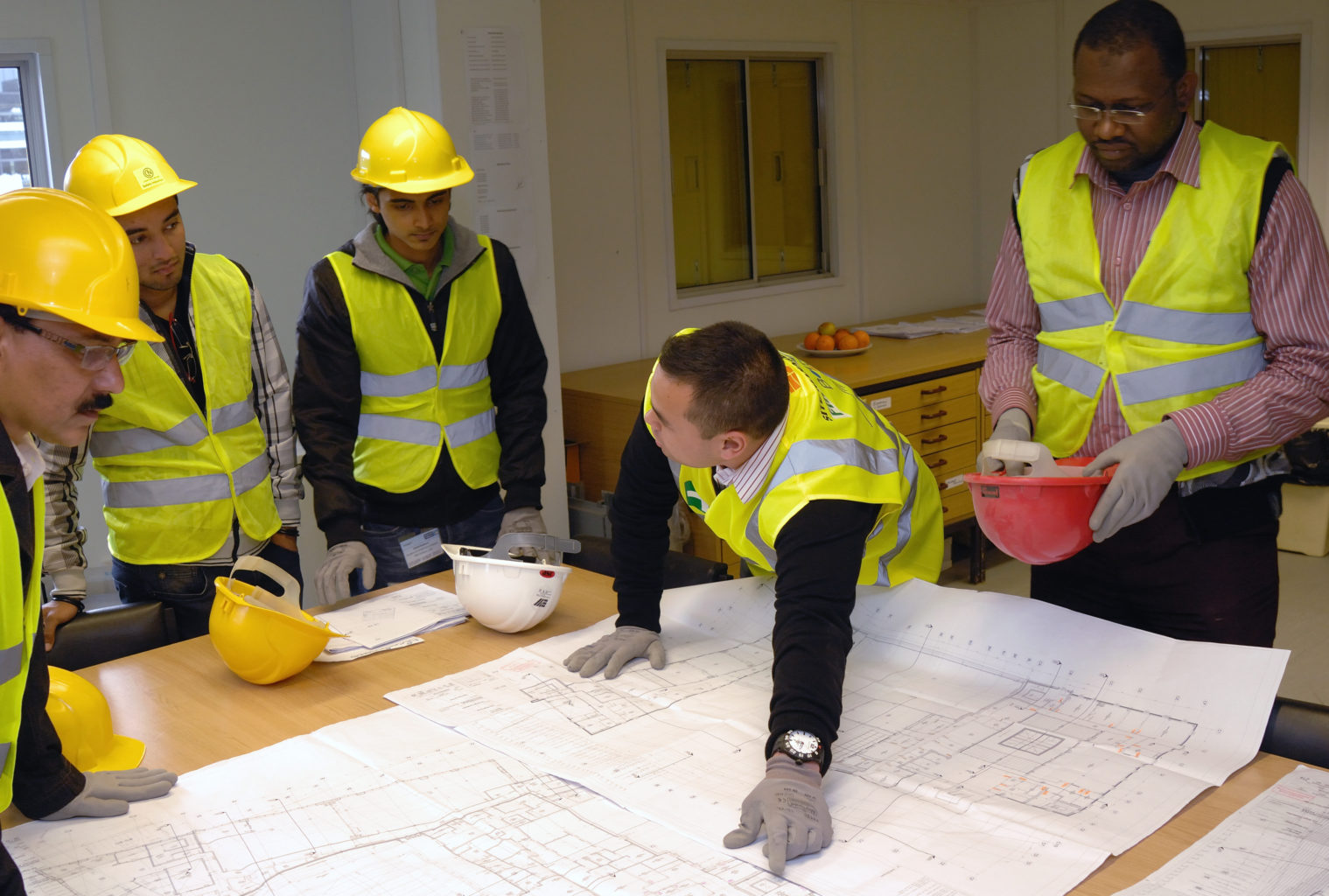

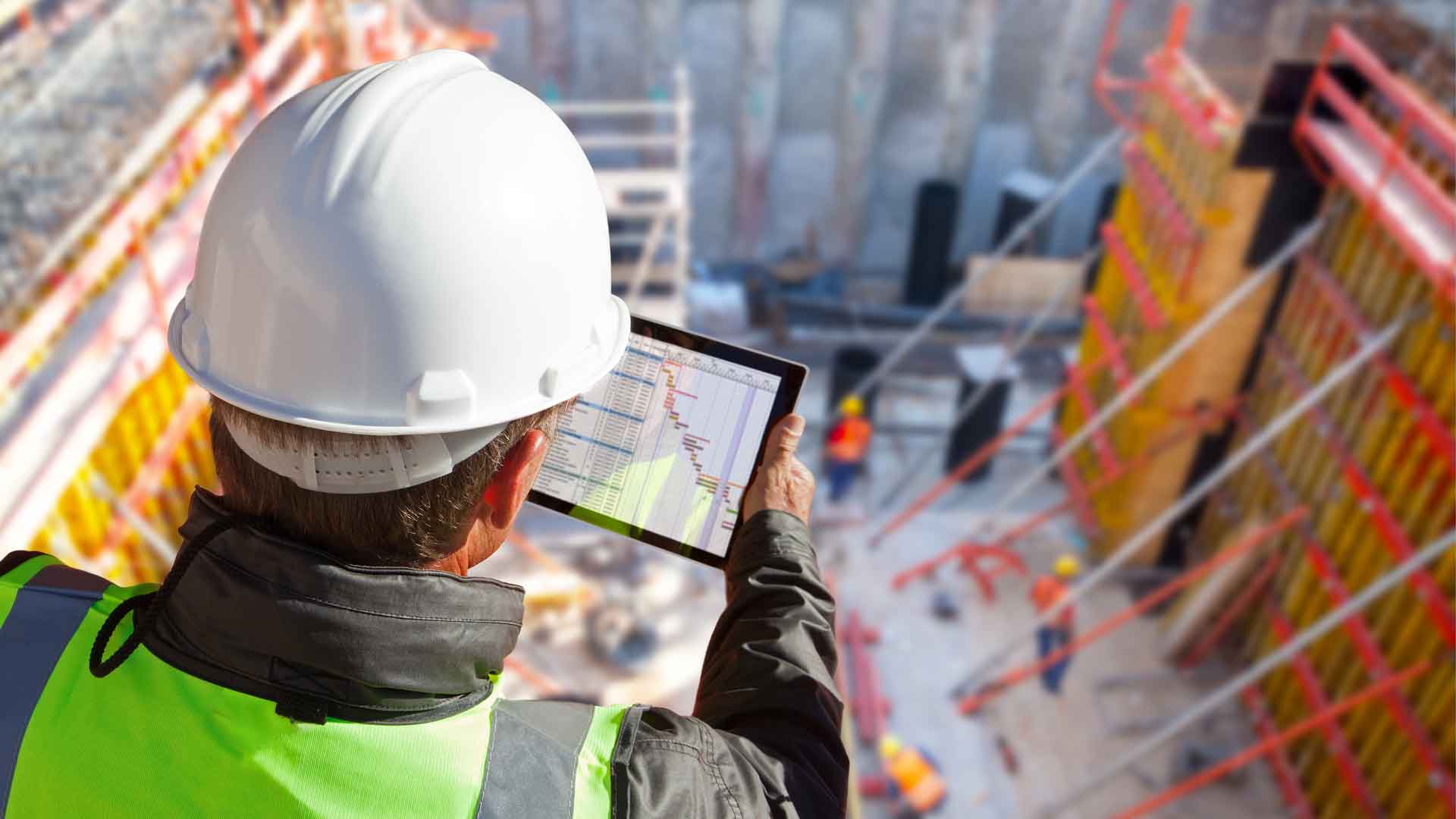


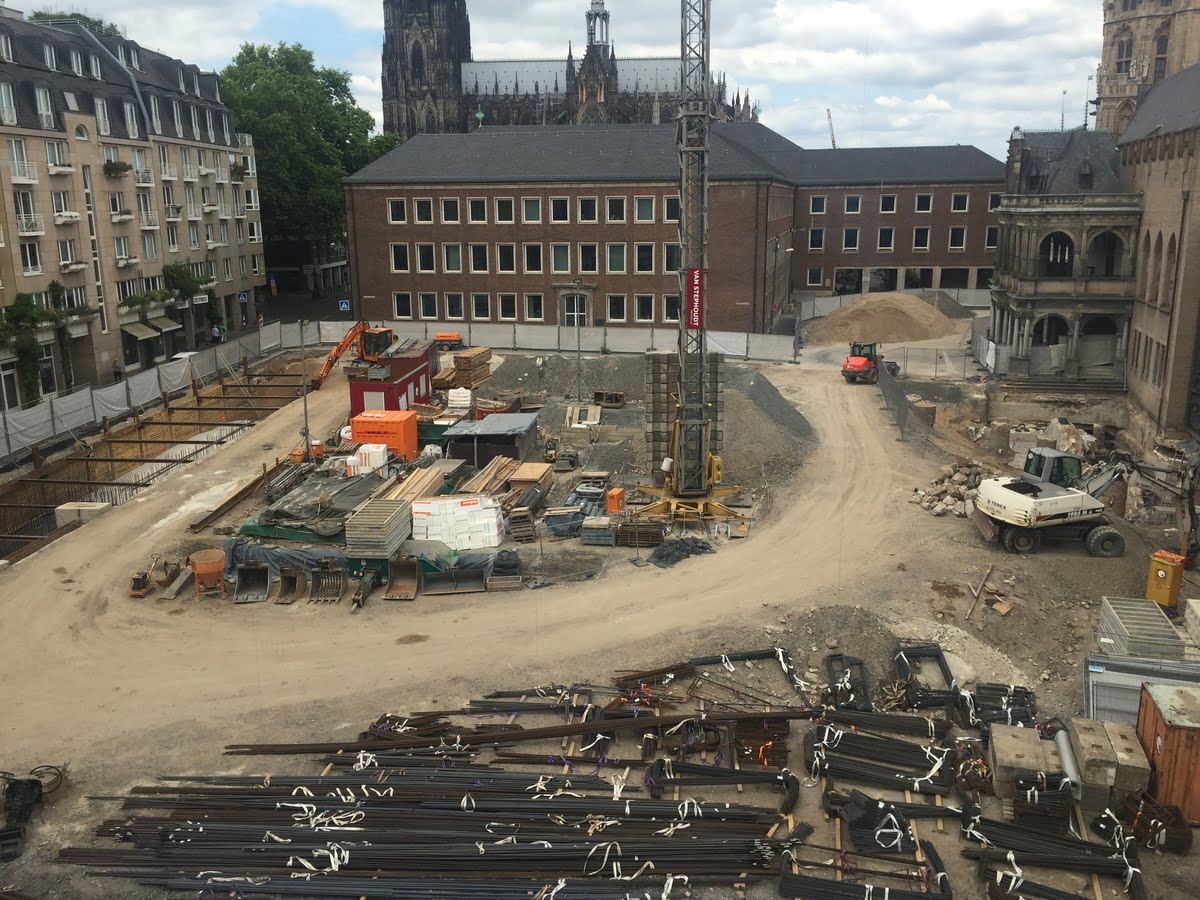


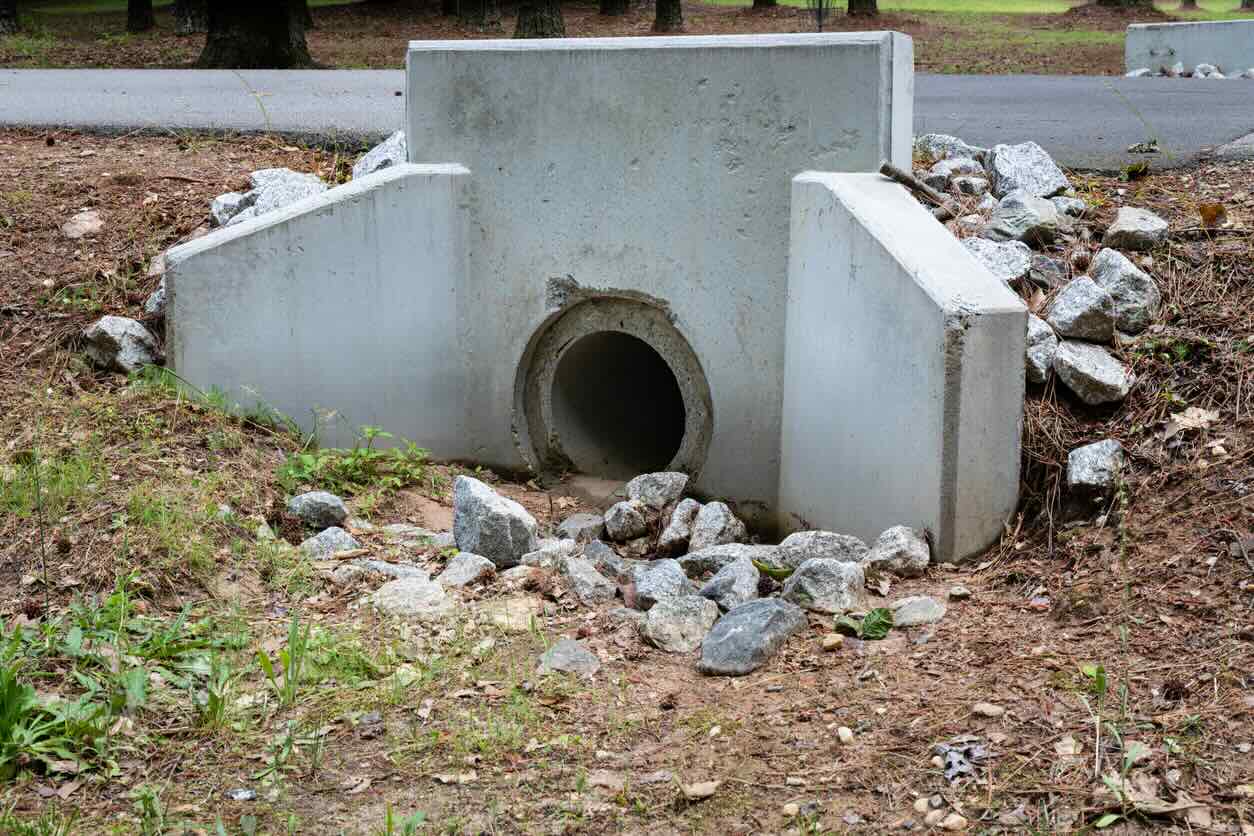
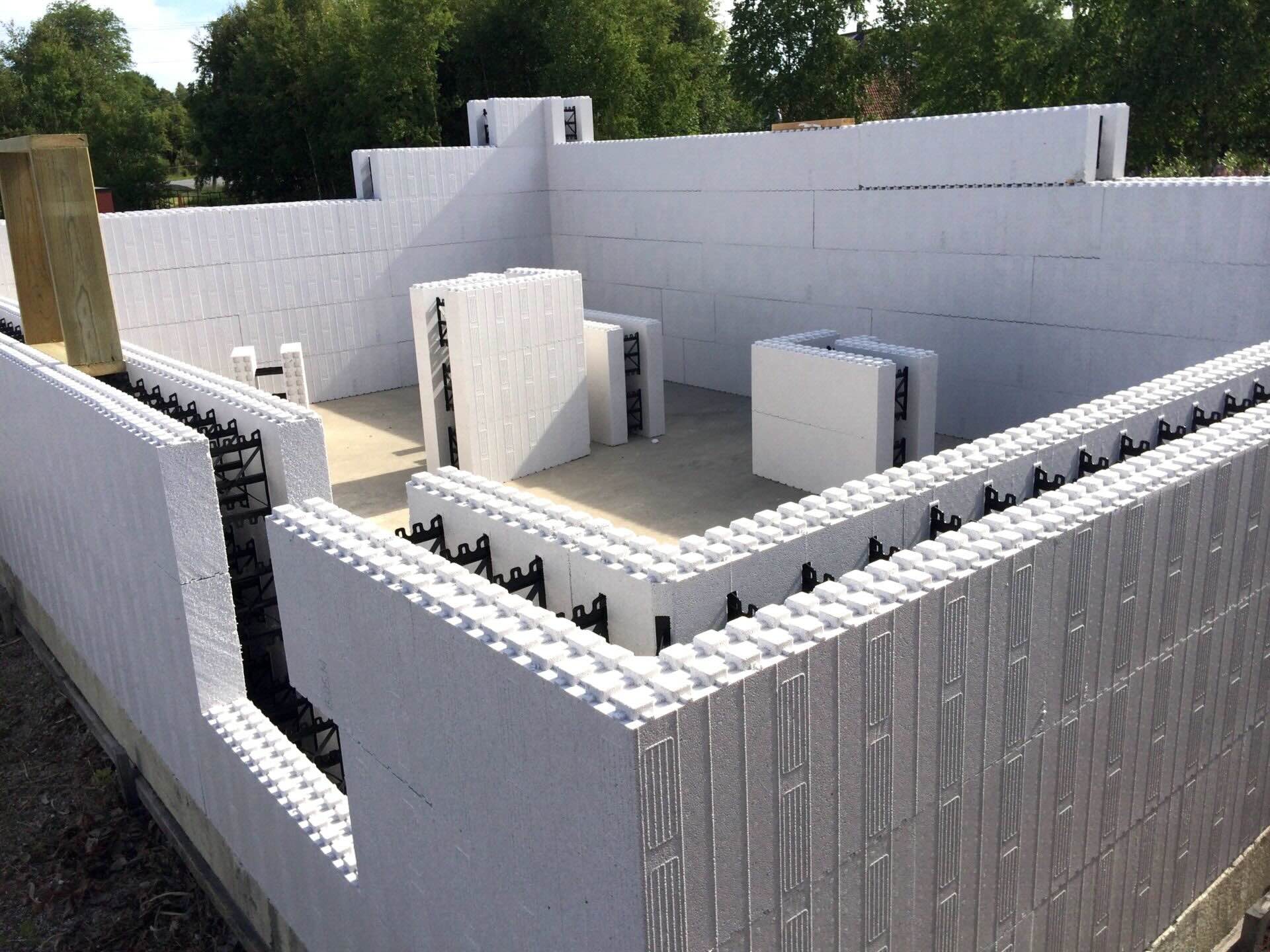


0 thoughts on “What Is Construction Management”